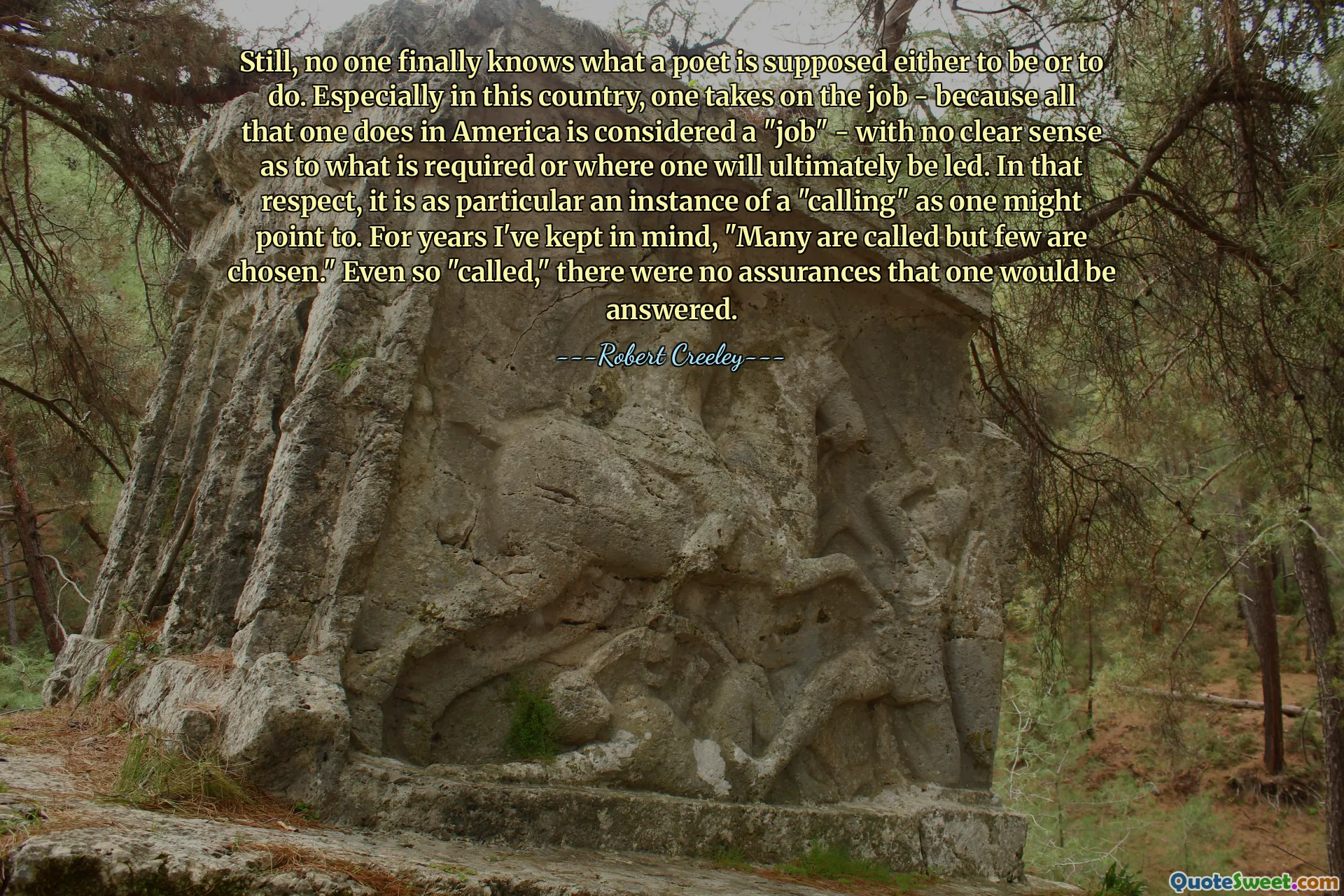
Still, no one finally knows what a poet is supposed either to be or to do. Especially in this country, one takes on the job - because all that one does in America is considered a "job" - with no clear sense as to what is required or where one will ultimately be led. In that respect, it is as particular an instance of a "calling" as one might point to. For years I've kept in mind, "Many are called but few are chosen." Even so "called," there were no assurances that one would be answered.
This quote delves into the complex perception of what it means to be a poet, especially within the American context. It highlights the ambiguity surrounding the role and expectations of poets, emphasizing that there is no definitive blueprint for what a poet is supposed to embody or accomplish. The reflection touches on the broader theme of vocation versus employment, noting that in America, pursuits labeled as "jobs" often lack inherent purpose or direction, unlike a true calling, which carries a sense of divine or deep personal intent. The notion that one is 'called' evokes a spiritual or aspirational dimension, yet the reality remains uncertain—many feel the call, but few find fulfillment or acknowledgment of their true path. This uncertainty and lack of assurances speak to the universal human experience of searching for meaning and purpose in one's calling. The quote resonates with the idea that artistry and true vocation are often misunderstood or undervalued, with external validations rarely mirroring internal aspirations. It raises essential questions about authenticity, dedication, and the unpredictability of creative or spiritual pursuits. Ultimately, it underscores the patience and resilience required to pursue a path that is seldom clear or guaranteed, making it a poignant reflection on the nature of calling and the human condition amidst societal expectations.











